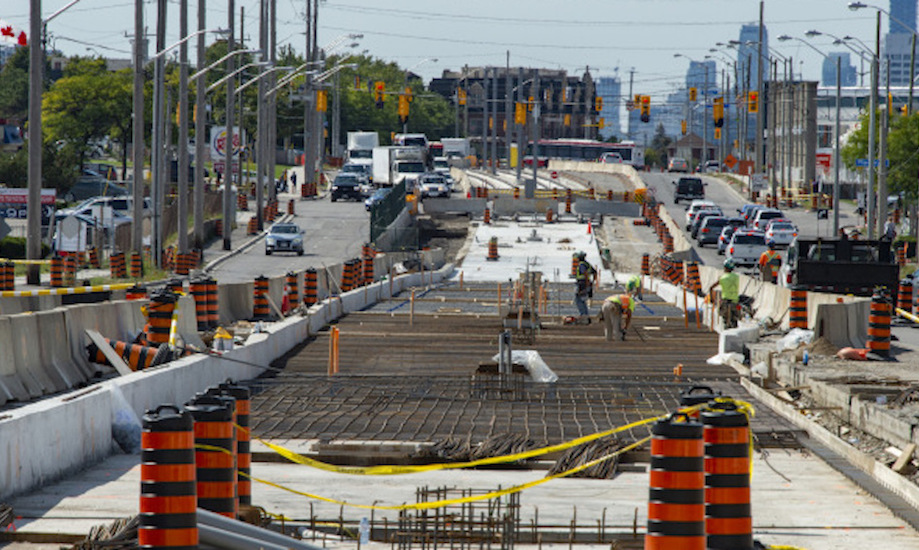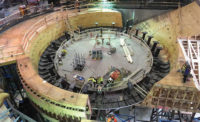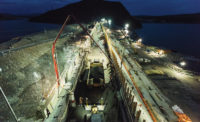Canada's eastern provinces, Quebec and Ontario, are leading the country's construction industry rebound from the COVID-19-driven downturn, even as the western province of Alberta has lagged, new statistics show.
Ontario, the country’s largest province with a major infrastructure sector, began to see construction activity—as measured by work hours—start to rebound at the end of May and peaked in September, rising 25% above a baseline in mid-March, according to Procore Technologies, a provider of construction management software, which publishes a weekly index.
Overall, construction activity across Canada is now 11% above the baseline.
Quebec saw both a sharp downturn, and a sharp uptick later, in the number of hours worked.
Construction activity in the province had plunged 97% below the baseline by the week of April 5, before starting to rebound in May and June. By mid-September, construction work hours in Quebec were 50% higher than in mid-March.
Alberta has continued to struggle, with slumping oil-and-gas prices having depressed construction activity in the energy-dependent province.
The number of construction hours worked began dropping in June and fell to a low of 35% below the baseline in early September, before rebounding to 19% below March levels, according to Procore.
“That certainly tracks with what I am hearing from our members,” said John Gamble, president and CEO of ACEC/Canada, adding that the drop in Alberta “is tied to the downturn in oil and gas.”
British Columbia, by contrast, has seen little change in the overall pace of activity, with construction continuing to move ahead on the controversial Trans Mountain pipeline, a prime target of protests by environmentalists and activists from indigenous tribes in the path of the project.
However, the project’s business rationale has also come under attack as well in a new study by the Parkland Institute, the University of Victoria, and the Canadian Centre for Policy Alternatives.
The project, taken over by the Canadian government in 2018 and re-approved in 2019, has seen its prospects dim amid a major cost increase, rising from $5.6 billion to its current price-tag of $9.5 billion.
The study calls the government’s plans to spend $9.5 billion on the pipeline “counterproductive,” adding it is “unlikely to increase the profits of Canadian producers or result in a revenue stream that will both cover construction costs and provide additional funds to reduce emissions in a meaningful timeframe.”







